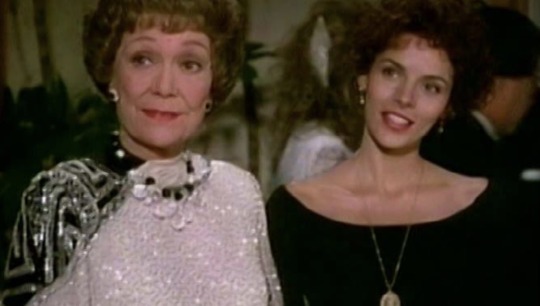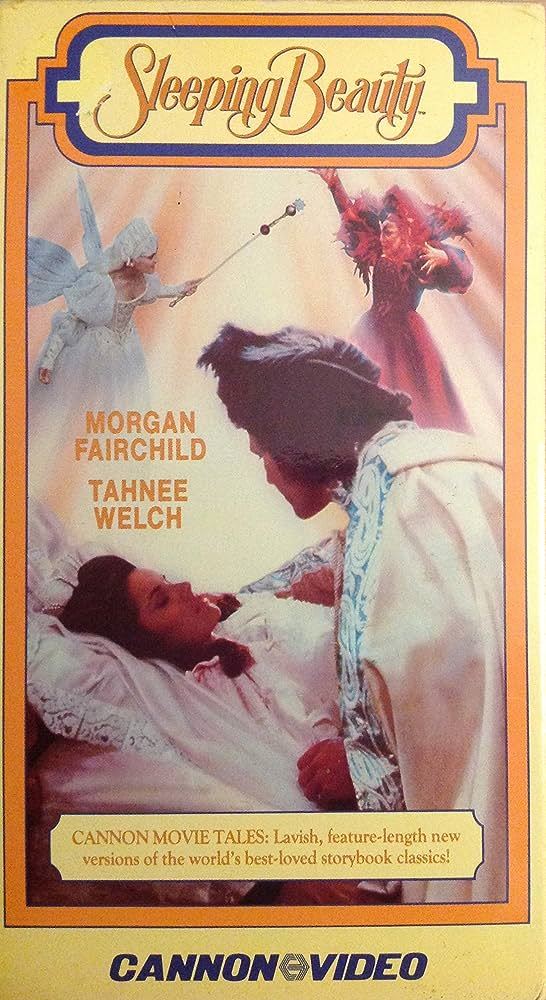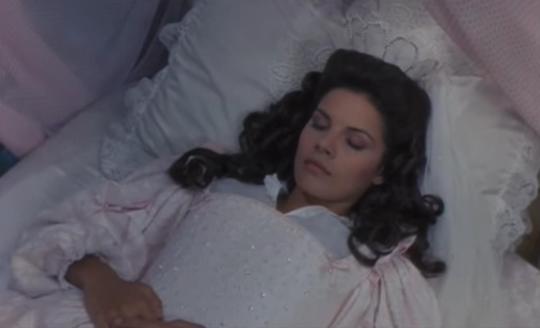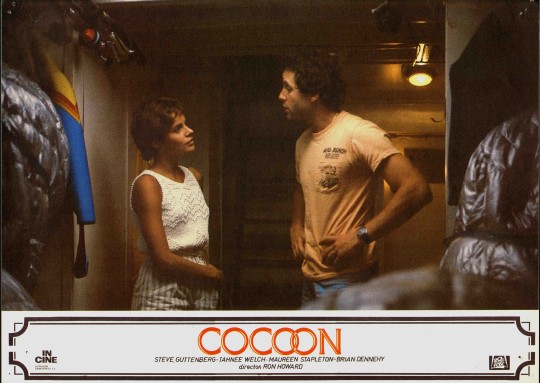#Tahnee Welch
Explore tagged Tumblr posts
Text

Cocoon (Кокон)
#movies#cult movies#alien#Ron Howard#Don Ameche#Hume Cronyn#Brian Dennehy#Steve Guttenberg#Jessica Tandy#Gwen Verdon#Tahnee Welch
11 notes
·
View notes
Photo

Cocoon, Spanish lobby card. 1985
10 notes
·
View notes
Text

Angela (Jane Wyman) et Shannon (Tahnee Welch).
2 notes
·
View notes
Text

5 notes
·
View notes
Text
youtube
#der joker#peter patzak#1987#peter maffay#tahnee welch#elliott gould#armin-müller stahl#wahnfried#der eisbär#tilt
2 notes
·
View notes
Text
Birthdays 12.26
Beer Birthdays
Banjo Bandolas
Jeremy Warren (1976)
Barkley Boont (1987)
Five Favorite Birthdays
Steve Allen; comedian, writer, actor (1921)
Charles Babbage; English mathematician (1792)
Henry Miller; writer (1891)
"Uncle Charlie" Osbourne; fiddle player (1890)
David Sedaris; writer (1956)
Famous Birthdays
Susan Butcher; dogsled racer (1954)
George Dewey; admiral (1837)
Elizabeth David; British cooking writer (1913)
Carlton Fisk; Boston Red Sox C (1947)
Thomas Gray; English poet (1716)
Alan King; comedian (1927)
Jared Leto; actor (1971)
Doris Lilly; writer (1926)
Donald Moffat; actor (1930)
Charles Pathe; French film pioneer (1863)
Fred Schepisi; Australian film director (1939)
John Scofield; jazz guitarist (1951)
Phil Spector; music producer (1940)
Jim Toomey; cartoonist (1960)
Mao Tse-Tung; Chinese dictator (1893)
Lars Ulrich; rock drummer (1963)
Maurice Utrillo; artist (1883)
Tahnee Welch; actor (1961)
Richard Widmark; actor (1921)
2 notes
·
View notes
Text
Sleeping Beauty Spring: "Cannon Movie Tales: Sleeping Beauty" (1987 film)

For children of the '80s and '90s, the Cannon Movie Tales are cult classics much like Shelley Duvall's Faerie Tale Theatre. Filmed in Israel, released direct-to-VHS, and shown frequently on the Disney Channel too, these nine fairy tale movie musicals are a memorable blend of '80s camp and sincere, innocent charm, performed by casts filled with celebrities. Sleeping Beauty, the second film in the series, is no exception. It stars Tahnee Welch (daughter of Raquel Welch) as Princess Rosebud, Morgan Fairchild as the Queen, musical theatre actor David Holliday as the King, Oscar-nominee Sylvia Miles as the villainous Fairy of Red, rock singer Jane Wiedlin as the kindly Fairy of White, Nicholas Clay as the Prince, and dwarf actor Kenny Baker, best known as R2D2 in Star Wars, as a friendly Elf.
This Sleeping Beauty blends details from both Perrault and the Grimms' versions of the tale, while adding creative touches too. The Elf – a character inspired by a briefly-mentioned dwarf in Perrault's version – serves as the chief viewpoint character. At the beginning, he makes so much mischief that the old Master Elf threatens to banish him unless he uses his magic for good instead. He soon sees a chance for a good deed when he finds the Queen yearning for a child; he brews her a potion, resulting in the birth of Princess Rosebud. Eight good fairies are invited to the celebration of her birth, each with a different signature color for her hair, wings, and dress, and who give Rosebud their magical gifts in a dance set to the Garland Waltz from Tchaikovsky's ballet. But the Fairy of Red goes uninvited, because as in the Grimms' version of the tale, there aren't enough golden plates. Of course, the fiery, flamboyant fairy comes anyway, and the Fairy of White has to soften her curse from death to sleep.
Sixteen years later, Rosebud has grown to be an inquisitive maiden, fascinated by the stories her nurse tells her of far-off lands with charming princes... and where strange contraptions called spinning wheels are used to make cloth. In a unique, comic portrayal of the repercussions of the King's ban on spinning, the entire kingdom, including the royal family, is forced to wear old, tattered rags, because no new fabric can be made. When the castle servants finally complain and threaten to quit, the King and Queen set out on a tour of other countries to buy cloth. Unfortunately, the day before they come home, Rosebud is exploring the castle grounds when she finds a mysterious tower, and glimpses an old woman with a spinning wheel inside. That night, when everyone else is asleep (including the Elf, who had promised the Queen he would guard her) Rosebud sneaks back to the tower to meet the old spinner... who of course is the Fairy of Red in disguise.
The next day, the King and Queen come home and are distraught to find their daughter in her enchanted sleep. But the Elf travels with seven-league boots to bring the Fairy of White back to the castle. With almost funny nonchalance, the good Fairy puts every mortal in the kingdom to sleep, then enshrouds the castle with vines to ensnare any would-be intruders – as a hundred years later, several skeletons reveal. When the Prince comes along, traveling in search of a cure for his loneliness and longing, he learns the tale of Rosebud from the now-elderly Elf, but his companions convince him that it must be a trap. Yet just as they ride away, the castle magically appears on their map where it hadn't been before. The Prince gallops back to battle the vines, enter the dark castle, and wake Rosebud with his kiss, restoring life and joy to the kingdom.
In terms of artistry, this Sleeping Beauty is a mixed bag. The budget is fairly low, although the sets and the medieval/Renaissance-era costumes are handsome, and the special effects are decent, but far from sophisticated. The whole production has an air of campy theatricality much like Faerie Tale Theatre, but without the same self-aware humor. Yet flawed though it may be, this is a charming Sleeping Beauty all the same. The starry cast does a fine job with their roles, particularly Kenny Baker's likable Elf and Sylvia Miles's shamelessly hammy evil fairy. Tahnee Welch is a bit stiff and stone-faced as Princess Rosebud, but she compensates with the striking beauty she inherited from her famous mother. And apart from a few corny lyrics, the songs by screenwriter Michael Berz and Max Robert – "Spin, Spin, Spin," "Queen's Lament," "Life Looks Rosier Today," "Rip," "Dare Me," "All to Sleep," "Slumber," and the joyful main theme, "How Good It Is" – are tuneful and endearing.
A perfect film this isn't, but its campy charm, and its nostalgic appeal for those of us who grew up with it, can't be denied.
@ariel-seagull-wings, @thealmightyemprex, @faintingheroine, @reds-revenge, @paexgo-rosa, @comma-after-dearest, @the-blue-fairie, @themousefromfantasyland, @thatscarletflycatcher, @fairytaleslive, @autistic-prince-cinderella
25 notes
·
View notes
Text

#ProyeccionDeVida
📣 Kino Cat / Cine Tulipán, presenta:
🎬 “COCOON”
🔎 Género: Ciencia Ficción / Fantástico / Drama / Comedia / Vejez / Extraterrestres / Amistad

⌛️ Duración: 117 minutos
✍️ Guion: Tom Benedek y David Saperstein
���� Fotografía: Donald Peterman
🎵Música: James Horner

🗯 Argumento: Un grupo de ancianos que viven en una residencia descubren la fuente de la eterna juventud. El único problema es que el lugar mágico pertenece a un grupo de extraterrestres, y desconocen si sus intenciones son amigables. Un espléndido reparto y acertadas dosis de sentimentalismo hicieron de este drama fantástico un gran éxito de taquilla.
👥 Reparto: Wilford Brimley (Benjamin Luckett), Don Ameche (Arthur Selwyn), Hume Cronyn (Joe Finley), Steve Guttenberg (Jack Bonner), Jessica Tandy (Alma Finley), Brian Dennehy (Walter), Maureen Stapleton (Mary Luckett), Jack Gilford (Bernard Lefkowitz) y Tahnee Welch (Kitty).

📢 Dirección: Ron Howard
© Productoras: 20th Century Fox & Zanuck/Brown
🌎 País: Estados Unidos
📅 Año: 1985

📽 Proyección:
��� Martes 03 de Diciembre
🕘 9:15pm.
🐈 El Gato Tulipán (Bajada de Baños 350 – Barranco)
🚶♀️🚶♂️ Ingreso libre
0 notes
Text
Top 5 @Wikipedia pages from a year ago: Thursday, 16th February 2023
Welcome, willkommen, velkommen, witamy 🤗 What were the top pages visited on @Wikipedia (16th February 2023) 🏆🌟🔥?

1️⃣: Raquel Welch "Jo Raquel Welch (née Tejada; September 5, 1940 – February 15, 2023) was an American actress. Welch first garnered attention for her role in Fantastic Voyage (1966), after which she signed a long-term contract with 20th Century Fox. They lent her contract to the British studio Hammer Film..."

Image by Unknown author
2️⃣: Ant-Man and the Wasp: Quantumania "Ant-Man and the Wasp: Quantumania is a 2023 American superhero film based on Marvel Comics featuring the characters Scott Lang / Ant-Man and Hope Pym / Wasp. Produced by Marvel Studios and distributed by Walt Disney Studios Motion Pictures, it is the sequel to Ant-Man (2015) and Ant-Man and the Wasp..."
3️⃣: Tahnee Welch "Latanne Rene "Tahnee" Welch (born December 26, 1961) is an American model and actress and is the daughter of the late actress Raquel Welch...."
4️⃣: Bruce Willis "Walter Bruce Willis (born March 19, 1955) is an American retired actor. He achieved fame with a leading role on the comedy-drama series Moonlighting (1985–1989) and has appeared in over a hundred films, gaining recognition as an action hero for his portrayal of John McClane in the Die Hard franchise..."

Image licensed under CC BY-SA 3.0? by Gage Skidmore
5️⃣: Nikki Haley "Nimarata Nikki Haley (née Randhawa; born January 20, 1972) is an American politician and diplomat who served as the 116th governor of South Carolina from 2011 to 2017 and as the 29th United States ambassador to the United Nations from January 2017 to December 2018. A member of the Republican Party,..."

Image licensed under CC BY-SA 3.0? by Gage Skidmore
0 notes
Photo

Cocoon, Spanish lobby card. 1985
8 notes
·
View notes
Text

Shannon Taylor (Tahnee Welch).
1 note
·
View note
Text

Decoding Excellence: The Man, James Westley Welch, Behind the Icon
James Westley Welch, a man whose journey unfolded against the backdrop of Hollywood’s glamour, was born on January 29, 1937, in Pike, Missouri. His early years saw him navigating the seas as a tuna fisherman during his senior years, an unexpected precursor to the glitz and glamour that awaited him in the entertainment industry. The narrative of James Westley Welch is one of transformation – a transition from the simplicity of maritime life to the complexities of the Hollywood spotlight. A Teenage Love Story The pages of James’s story turned dramatically during his high school years, particularly at San Diego High, where fate intertwined with young love. Raquel Welch, already a captivating figure with her beauty and charisma, found herself drawn to the quiet charm of James. Their teenage romance, an embodiment of contrasts between Raquel’s vivacious extroversion and James’s reserved introversion, burgeoned into an undeniable connection. Married and Marching to the Beat of Their Own Drums The year 1959 marked a pivotal moment in the love story of James and Raquel as they eloped to Las Vegas, exchanging vows and embarking on a journey that included the joyous arrival of two children, Damon and Tahnee. Their lives seemed to align harmoniously with the rhythm of a young family, Raquel’s budding career in local theater productions, and the promising prospect of a shared future. James Westley Welch’s Net Worth James Westley Welch’s financial standing became noteworthy, with reported estimates placing his net worth at an impressive $40 million. This financial success was not only emblematic of his endeavors but also intertwined with his marriage to the celebrated American actress Raquel Welch, who herself boasted an estimated net worth of $40 million. Dreams Diverging, Paths Separating The tapestry of their shared dreams began to unravel as Raquel’s acting aspirations soared to new heights. Her talents and ambitions demanded a life beyond the confines of their small-town ex.......... Read More Source: Getjoys
0 notes
Text
How Much Money Do Damon Welch Have In 2023?

An American actor for both film and television, Damon James Welch. His work on Raquel's Complete Beauty and Fitness (1984), Biography (1987), and Intimate Portrait are well known (1990). The age of Damon Welch is 59. He was born in San Diego, California, USA, on November 6, 1959. Raquel Welch, an American actress, and singer, is Welch's mother. His father is a writer by the name of James Welch. His eldest sister, Tahnee Welch, is a model and actress. Hurry up and get the scoop on Damon Welch's net worth! Time's ticking, don't miss out!
Damon Welch's Net Worth
Welch's varied portfolio was successful. Welch had a net worth of almost $40 million at the time of her passing. Welch was more than just a sex icon; perhaps her greatest legacy is that she was one clever cookie. Check Out: - Jessica Lowndes Net Worth: Is Collaborate On GAC Family Someday At Christmas? - Jim Sinegal Net Worth: Why A Costco Brand Almost Had A Whole Different Name?
Damon Welch Family
Raquel Welch, 82, passed away today. Welch "died away quietly early morning following a brief illness," according to her manager Steve Sauer, who confirmed the tragedy people. The actress dies leaving behind two children in addition to a legacy in beauty, cinema, and television. She gave birth to Damon Welch and Latanne "Tahnee" Welch during her marriage to James Welch, her high school sweetheart. Even though James and the actress separated in 1972, she has occasionally been spotted out with her kids throughout the years. Here is all there is to know about Welch's kids. Damon wed Rebecca Trueman, a cricketer for England and the daughter of Fred Trueman, in June 1991, Welch chose a low-cut black dress for the wedding, and several media outlets reported that Damon and Rebecca were at odds with Welch over the attire decision at the time: https://twitter.com/BeingBoycie/status/1625982088821325825 Damon Welch: On November 6, 1959, Welch and her then-husband James Welch received their first child, a son they called Damon Welch. Damon appeared with his mother on various occasions over the years. Damon accompanied his mother to the 46th Academy Awards in April 1974, where Welch presented. This was one of Damon's earliest public performances. He went with her to a lot of additional award ceremonies and premieres, such as the Crocodile Dundee 2 Hollywood premiere in 1988 and the 39th Annual Emmy Awards in September 1987 (seen above). Latanne "Tahnee" Welch: on December 26, 1961. Welch had her first child at the same time that her career was beginning to take off. With breakthrough performances in 1966's Fantastic Voyage and One Million Years B.C., Welch made her film debut in the middle of the 1960s. Welch revealed in a prior interview with Oprah Winfrey how her early profession hurt her family. "I couldn't always be with my children when I wanted to be because I'm running around the world and being Miss Sex Symbol and having this big job in cinema and everything," she added. I eventually realized that this was having an impact on my children, and it used to make me very sad.
FAQs
What Ethnicity Is Raquel Welch? Welch was born Jo-Raquel Tejada in Chicago, Illinois to a Bolivian father and an American mother. How Old Is Damon Welch? 63 years (November 6, 1959) Who Is Raquel Welch Survived By? She is survived by her son Damon James Welch and daughter Tahnee Welch. Why Does Raquel Welch Wig? Raquel Welch famously said in her 2010 autobiography Raquel: Beyond the Cleavage “with the aid of a wig, I have more versatility in my life, and so can you!” And versatility is the key here as one of her wigs can give you as much freedom as if your salon-inspired tresses sprung naturally from your head! Stay up-to-date on what's happening by checking out The Active News for the freshest news! Read the full article
0 notes









